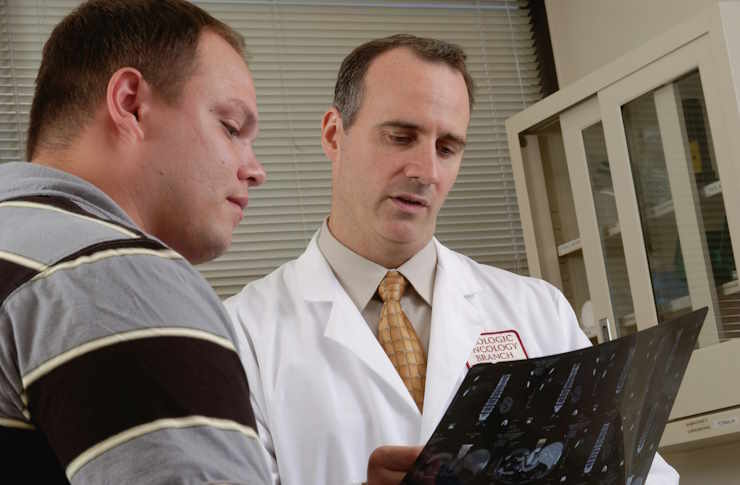A Deeper Look into Thyroid Cancer Treatment
When it comes to managing thyroid cancer, understanding the treatment options is crucial for making informed decisions about your health. Thyroid cancer, though often treatable, requires careful monitoring and timely intervention to ensure the best outcomes. From recognizing early warning signs to exploring treatment paths and seeking expert guidance, this comprehensive guide will provide valuable insights to help you navigate this diagnosis with confidence and knowledge.

Understanding Thyroid Cancer
Thyroid cancer originates from the cells of the thyroid, a butterfly-shaped gland at the base of your neck. The thyroid produces hormones that regulate your body’s metabolism, among other functions. Common symptoms include a lump or swelling in your neck, pain in your neck and ears, difficulty swallowing, and changes in your voice.
10 Early Signs of Thyroid Cancer
Recognizing the early signs of thyroid cancer is vital for early diagnosis and effective treatment. Here are ten warning signs to watch for:
-
Neck Lump or Swelling: A painless lump or swelling in the neck is one of the most common early signs of thyroid cancer. It may grow over time and become noticeable.
-
Hoarseness or Voice Changes: Persistent hoarseness or changes in your voice can occur when the cancer affects the vocal cords.
-
Difficulty Swallowing: Tumors pressing on the esophagus can cause trouble swallowing food or liquids.
-
Persistent Cough: A chronic cough that is not related to a cold or other respiratory issue could be a sign of thyroid cancer.
-
Neck Pain: Pain in the neck or throat that can sometimes extend to the ears may signal thyroid cancer.
-
Swollen Lymph Nodes: Enlarged lymph nodes in the neck can indicate the spread of cancerous cells from the thyroid.
-
Breathing Difficulties: Difficulty breathing or shortness of breath may occur if a tumor is pressing on the windpipe.
-
Unexplained Weight Changes: Sudden weight gain or loss could be related to thyroid hormone imbalance caused by cancer.
-
Fatigue: Persistent fatigue and low energy levels can be early signs of thyroid dysfunction, including cancer.
-
Hormonal Changes: Irregular menstrual cycles or mood swings may result from disrupted hormone production by the thyroid.
According to the American Cancer Society, these symptoms warrant medical attention, and early diagnosis can significantly improve treatment outcomes. For expert advice, consult an endocrinologist or a cancer specialist at reputable institutions such as the Mayo Clinic or MD Anderson Cancer Center.
The Relationship between Thyroid Eye Disease and Thyroid Cancer
Thyroid Eye Disease (TED), a condition where the eyes are pushed forward or bulge out of the eye sockets, is often associated with Graves’ disease. However, it can also be linked to thyroid cancer, particularly in cases involving hormone imbalances. Thyroid Eye Disease photos can provide a visual understanding of how the condition affects patients. Quick relief for Thyroid Eye Disease discomfort can be achieved through specialized treatments, including medication, radiotherapy, or surgery. Consulting with ophthalmologists who specialize in TED is recommended for effective management.
Recognizing Thyroid Eye Disease: A Guide for Seniors
Seniors, it’s essential to identify if you have Thyroid Eye Disease as early detection may prevent severe complications. Thyroid Eye Disease symptoms include dry eyes, excessive tearing, light sensitivity, blurred or double vision, pain or pressure in the eyes, and retracted eyelids. It’s always advisable to see a doctor if you notice these signs. The American Thyroid Association (ATA) and the Endocrine Society offer resources for seniors seeking specialized care for thyroid-related issues.
The Various Treatment Options for Thyroid Cancer
Thyroid cancer treatment depends on the type and stage of the disease. Options include surgery, radioactive iodine therapy, hormone therapy, external radiation therapy, chemotherapy, or targeted drug therapy. Sometimes, a combination of these treatments is recommended by the doctor. Facilities like the Cleveland Clinic and Johns Hopkins Medicine provide multidisciplinary care for thyroid cancer patients.
Disclaimer: This article is for informational purposes only and should not be considered medical advice. Please consult a qualified healthcare professional for personalized guidance and treatment.




